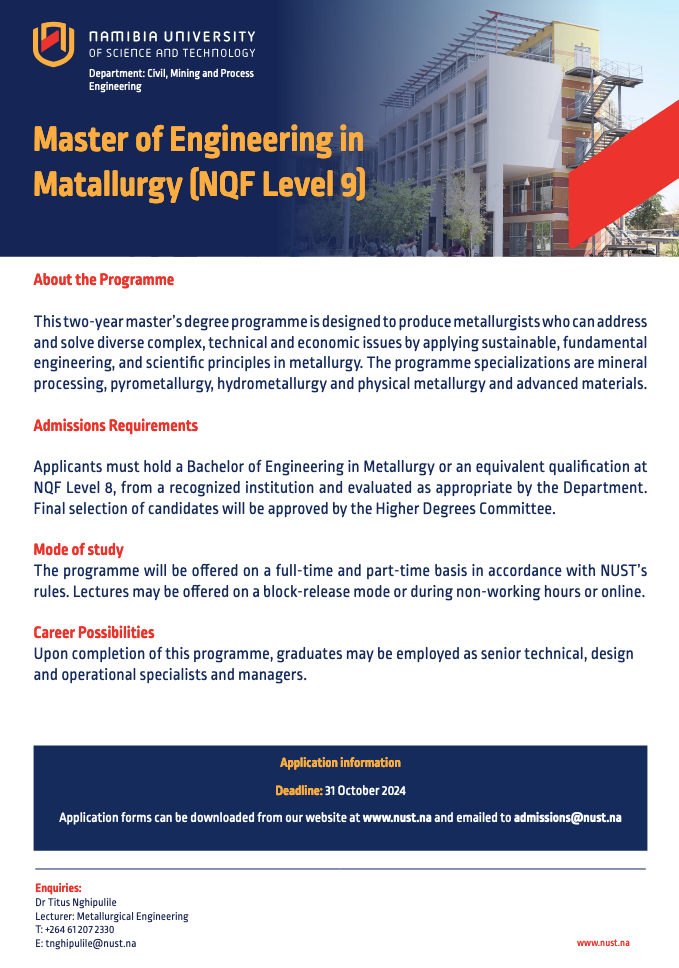FACULTY HOME
The Faculty of Engineering and the Built Environment is a 120+ full-time tenure track faculty, fueling groundbreaking research, growing and modernizing its broad and deep technical foundation and skill training. The faculty consists of 2 schools with a combination of 4 academic departments (consisting of 24 Undergraduate programmes and 22 postgraduate programmes), 4 research institutes and a bridging programme (InSTEM).
The Departments are: Department of Civil, Mining and Process Engineering (DCMPE); Department of Mechanical, Industrial and Electrical Engineering (DMIEE); Department of Architecture, Planning and Construction (DAPC); and Department of Land and Spatial Sciences (DLSS).
The Institutes are: Material Testing Institute (MTI); Institute for Land, Livelihoods and Housing (ILLH); Namibia Energy Institute (NEI); and the Centre FOR Mining and Mineral Beneficiation Beneficiation (CEMMB).
Our students get excellent preparation with an emphasis on interdisciplinarity, independent learning ability, innovation, and design. Our professional degree programmes recognises the reality that the modern engineering professional needs to be multi-skilled, therefore, equipping our students to confidently grab their space in an ever-evolving industry and inscribe an indelible contribution to the engineering profession by further expanding opportunities reaching across global borders and diverse disciplines to address the pressing complex challenges of our time, consequently, creating a strong and resilient future.
Our rich alumni network that continues to establish outstanding records of achievement not only in technical fields but also in academia, business, government, and as leaders in their community is testimony to this assertion. In essence, we offer a perfect platform for students to thrive.
Civil, Mining and Process Engineering (MTI, CEMMB)
- Civil
- Mining
- Metallurgy
- Chemical
- Environmental
- Integrated Water Resources Management
Mechanical, Industrial and Electrical Engineering (NEI)
- Power
- Marine
- Industrial
- Space Technology
- Electronics
- Telecommunication
- Mechanical
- Space and Atmospheric Science
- Sustainable Energy Systems
Architecture, Planning and Construction (ILLH)
- Architecture
- Quantity Surveying
- Town and Regional Planning
- Regional and Rural Development
- Urban and Regional Planning
- Landscape Architecture
- Urban Design
- Spatial Sciences
Land and Spatial Sciences
- Property Studies
- Land Administration
- Geomatics
- Geoinformation Technology
- GIS and Earth Observation

